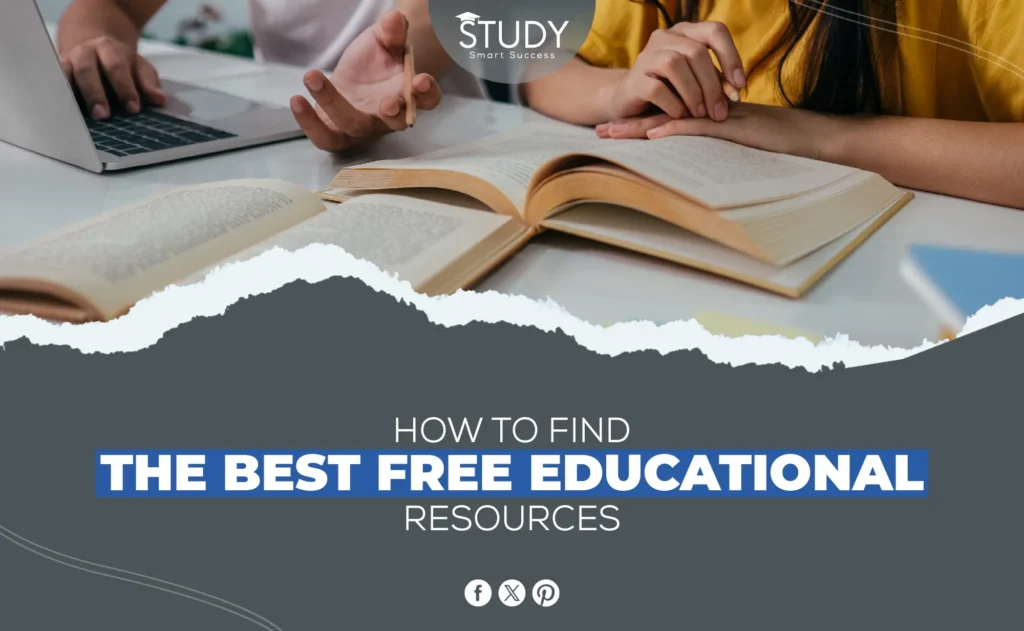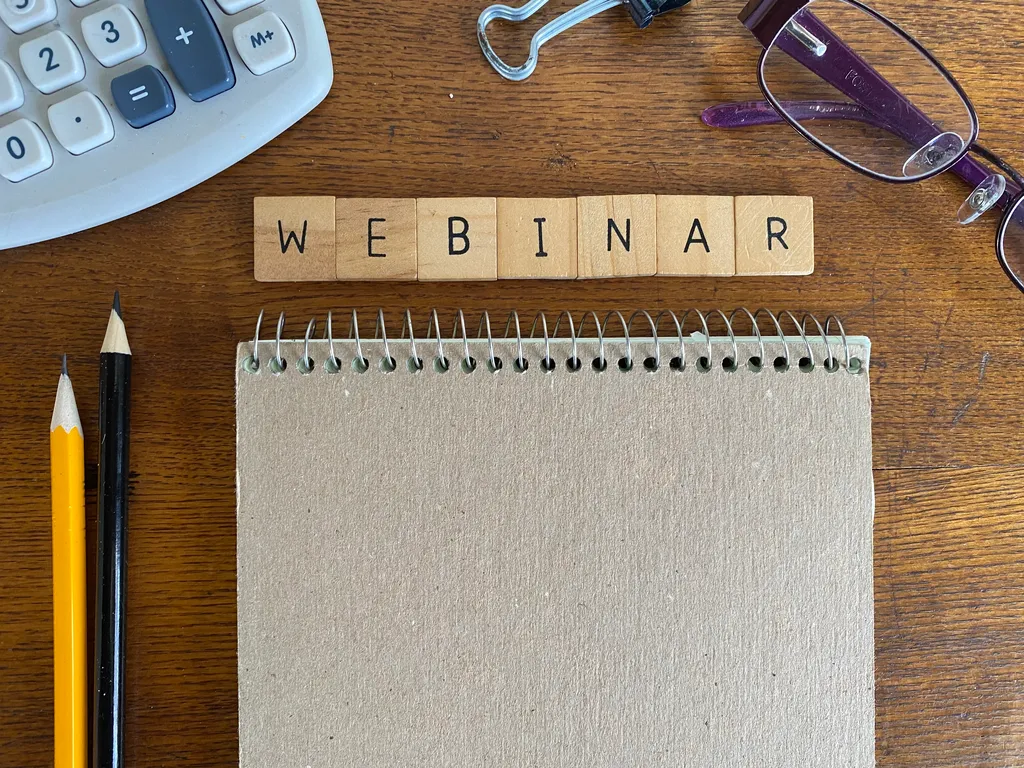Introduction
Are you looking for fresh and improved ways to improve your learning? At this point, there are a lot of tools that can help people learn about any subject they want. Plus, many of these great chances to learn don’t cost anything extra, making it easier than ever to become an expert on almost anything. Many free educational resources that are often missed or unknown can be found if you’re ready to look around. The tips and strategies in this blog post will help you find and make the most of those truly useful learning tools! So come with us as we look for the best free educational opportunities. Let’s begin!
Identify the subject and type of educational resources you need
It is important to know what subject or topic you want to learn more about before looking for free educational tools. To focus on finding the best tools for your needs, this will help you narrow down your search.
It’s necessary to know what kind of information will work best for you once you know the subject. Do you learn best by seeing things? Then, you might want to check out video lessons or online classes. Do you like learning by doing? Look for projects or workshops where you can connect with other people. Finding what kind of learning you like can help you choose the best teaching materials.
Utilize search engines and directories.
The internet is a great place to find free learning materials. An online list or search engine is one of the best and easiest ways to find the needed materials. You can narrow down your searches on these sites to find useful learning materials by using keywords, themes, and types of resources.
Coursera, EdX, Khan Academy, and Open Culture are all well-known search engines and sites. There are a lot of free courses, videos, lectures, and other learning materials from top colleges and schools worldwide on these sites.
Utilize social media and online communities.
The use of social media and online communities is another great way to find free tools for learning. There are groups and pages on social networks like Twitter, Facebook, Reddit, and LinkedIn that share free learning chances.
You can stay updated on new tools and connect with other people interested in the same educational topics by joining these groups or following the relevant hashtags. You can also ask people in these groups for suggestions and help, making your search more targeted and useful.
Look into government and non-profit organizations.
As part of their goal to encourage education and learning throughout life, governments and non-profits often offer free educational materials. There are online classes, e-books, engaging games, and more on this list.
You can find a lot of free educational tools on your local government’s website or at non-profits like the Khan Academy or National Geographic Education. Talking to these groups can also help you determine if they offer any funds or scholarships for attending school.
Be open to unconventional resources.
It’s important to keep an open mind and be ready to try new things when looking for free educational resources. You could do this by attending free classes or seminars at your local library, museums, or cultural centers or even talking to experts in your field to get advice or help.
Research online databases and websites for free educational materials
Be bold and try out new and different tools that are less well-known. You never know what useful information you might find through these unusual means.
You can use search engines and directories, but there are also a lot of online databases and websites that collect free training materials from different sources.
Open Educational Resources (OER), MERLOT, and the Directory of Open Access Journals (DOAJ) are all examples of these libraries. These websites have many free textbooks, journals, articles, and other learning materials that can help anyone learn more about a topic.
Utilize online libraries, archives, and other sources of information
Finally, remember that online libraries, archives, and other sites have much information. Many libraries at universities and other places have been scanned and are now open to everyone for free. This gives you access to e-books, term papers, and other useful materials.
Online libraries
Online libraries are great for free education. Project Gutenberg, Google Books, and the Digital Public Library of America (DPLA) offer books, articles, videos, and more on many subjects. For academic research, online libraries offer scholarly papers, scientific articles, and other specialized materials that take more work to get elsewhere. Before viewing material, check if it’s under an open license or for public use to respect copyright rules. Online libraries are great for continual learning and skill improvement since they provide much knowledge.
Government websites
Another good way to get free training materials is to use government websites. On a federal and state level, government agencies often have much information, reports, publications, and educational tools that anyone can use for free. Sites like the Library of Congress, the National Science Foundation, and the U.S. Department of Education have a lot of teaching material on various subjects. Most of the time, these tools are accurate and up-to-date, making them very useful for formal education and learning on your own. Always make sure to check the source’s qualifications to make sure the information is correct and reliable.
Webinars
Online webinars are another great free instructional option. Live, interactive sessions allow you to listen to the presenter, ask questions, and engage in discussions. Webinars from renowned organizations and universities offer expert instruction on various topics. They are a great opportunity to learn about certain topics, follow trends, and network with other participants. Free webinars are listed on Webinars, GoToWebinar, and Eventbrite throughout many fields. Free webinars fill up quickly, so register early. Prepare, participate, and read any recommended resources or readings in these sessions, like in a classroom.
Check out free podcasts and video series related to your topic.
Examining podcasts and video series pertinent to the subject matter you are interested in is yet another fantastic choice for gaining access to free educational resources. There are a lot of institutions, organizations, and individuals who are specialists in their fields who have created podcasts or YouTube channels that cover a wide variety of interesting and educational topics.
For instance, YouTube’s Crash Course has fun and interesting videos about history, writing, science, and other subjects. Another famous site with talks from experts and thought leaders on a wide range of subjects is TED Talks.
Look into online courses, textbooks, and articles available for free.
Take advantage of the many free Internet courses, textbooks, and articles out there. You can sign up for free MOOCs (Massive Open Online Courses) and other open-access courses at many universities and other places.
Online courses
Online courses have transformed education, making it more accessible. Top universities and institutes offer humanities, sciences, business, and arts courses. Coursera, EdX, and FutureLearn provide thousands of free online courses. These courses include video lectures, readings, quizzes, and peer-graded tasks that simulate a classroom.
These courses often award certificates that may be added to resumes or LinkedIn profiles. Online courses allow students to learn at their own pace from home. Use discussion forums in these courses for interaction with classmates and professors to improve your understanding.
Articles
Articles are another great way to find free material that can teach you. They give you short, focused information on a wide range of topics so that you can use them for in-depth study and quick learning. You can find many scholarly works in many fields on websites like Google Scholar, JSTOR, and ERIC. In the same way, sites like Medium and LinkedIn have articles that make you think about a wide range of issues written by professionals and amateurs.
Reading these pieces regularly can help you understand complicated ideas better, keep you updated on industry trends, and broaden your intellectual horizons. Setting aside time every day to read articles is a good way to make learning a habit that will last a lifetime.
Textbooks
Free textbooks are great for people who want to learn independently or supplement their official education because they are very expensive to buy. You can get textbooks for free on a wide range of topics in many places. For example, Rice University’s OpenStax gives students free access to high-quality texts that other students have reviewed. Another useful site is Project Gutenberg, which has over 60,000 free eBooks, such as courses and reference books.
The Open Textbook Library at the University of Minnesota is another great place to find free textbooks that have been reviewed by experts and are released freely. These kinds of tools are helpful for individual students, and they’re also a cheap way for teachers to ensure that all of their students can get the materials they need.
Remember to set clear goals and stay consistent in your learning journey.
Despite the abundance of free educational tools that are currently available, it is critical to define your learning objectives and maintain a steady pace throughout the process. When there are so many different paths, it’s easy to become confused and lose your bearings. Determine the areas of study you are most interested in, prepare a timetable outlining your learning goals, and stay committed to following them.
Additionally, de Boland combines resources from various platforms to create a more well-rounded educational experience for yourself. You can profit from the wide variety of free educational resources at your disposal if you apply yourself with desire and dedication.
Make use of social media platforms to find resources from experts in the field.
Use social media platforms to locate extra resources offered by specialists in the subject. On their own social media accounts, many businesses, organizations, and professionals distribute useful educational content such as articles, webinars, podcasts, and other media. To be abreast of the most recent insights and recommendations for further reading, you should follow thought leaders and influencers on social media platforms such as Twitter and LinkedIn.
Join relevant Facebook groups or follow hashtags relating to your interest to interact with folks who share your interests and learn about new resources. Social media platforms can be an effective method for broadening one’s knowledge base and being active in ongoing conversations relevant to one’s area of study.
Conclusion
In conclusion, the internet gives us access to a wealth of free educational resources, which can improve the quality of our learning experiences and assist us in acquiring a more comprehensive understanding of various topics. A wide variety of content is available for self-education, including webinars, podcasts, essays, online courses, textbooks, and more.
It is essential to establish crystal-clear goals, maintain consistency, and use social media platforms to locate more resources from industry professionals. Taking advantage of these free resources enables us to broaden our intellectual horizons and cultivate lifelong learning habits. All it takes is commitment and perseverance on our part.
Frequently Asked Questions (FAQs)
Q1: What are some reliable sources for free online courses?
Coursera, EdX, Udemy, and the many colleges that provide MOOCs (Massive Open Online Courses) or other open-access courses are all reliable sources for free online courses.
Q2: Where can I find free textbooks and articles?
On websites such as OpenStax, Project Gutenberg, JSTOR, Google Scholar, ERIC, Medium, and LinkedIn, in addition to the Open Textbook Library at the University of Minnesota, one can obtain free access to various scholarly publications and textbooks.
Q3: How can I use social media for my learning journey?
Social media sites can help you learn a lot. You can stay current on the latest ideas and books in your field by following influential people, thought leaders, and tags linked to your interest on social media sites like Twitter and LinkedIn.
Q4: How can I stay focused and consistent in my learning journey?
Set clear goals, figure out your interests, make a schedule, and write down specific learning targets to stay on track. To make a well-rounded learning experience, mix and match materials from different platforms.
Q5: What are the benefits of using free educational resources?
Free educational tools let you learn independently, add to what you learn in school, and encourage you to keep learning throughout your life. With them, you can learn a lot about many topics at your own pace and without spending a lot of money on texts or classes.





